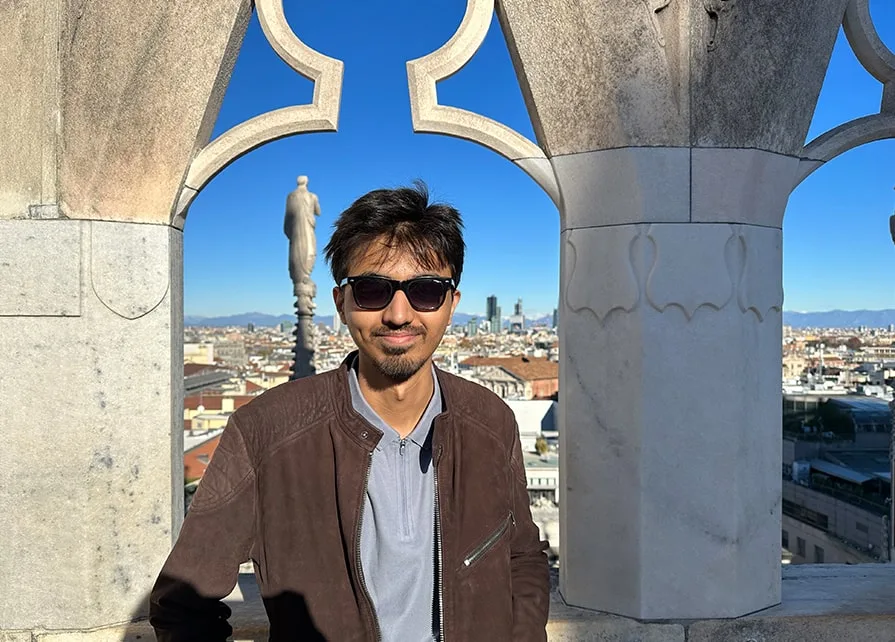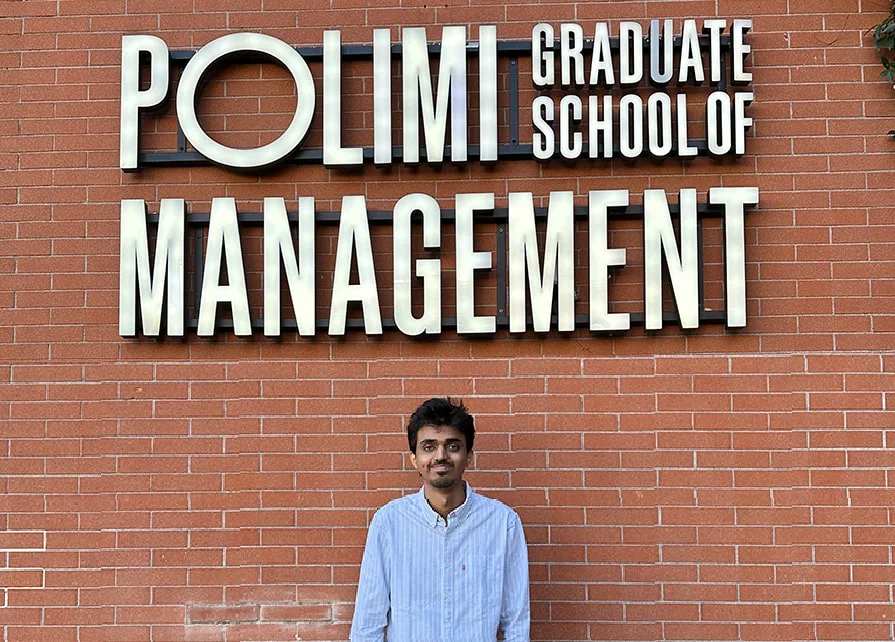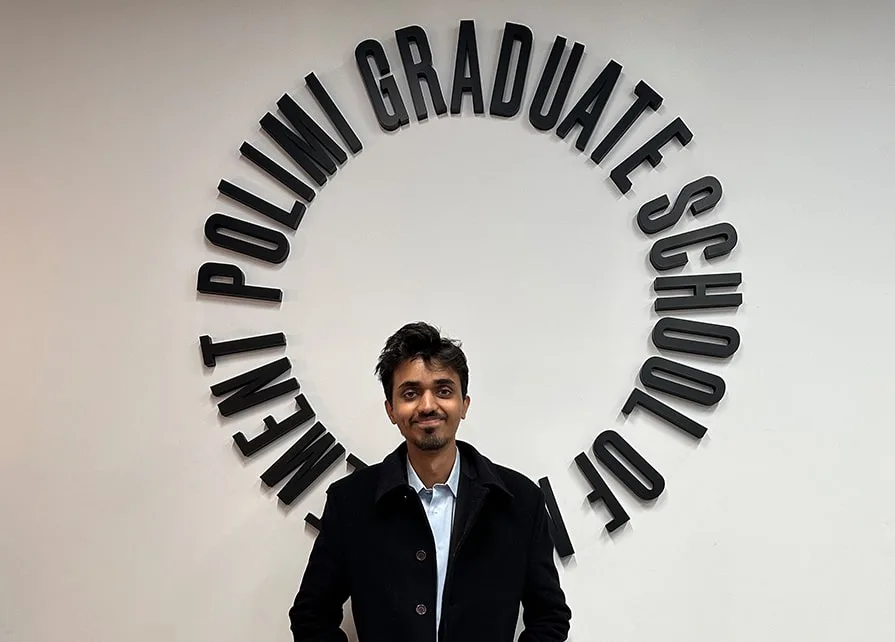Find the programme that meets your requirements and aspirations.
Apply nowStudent Blogs
- SPJIMR
- Blog
- Italian experience with SPJIMR’s Post Graduate Programme in Family Managed Business (PGPFMB)
Italian experience with SPJIMR’s Post Graduate Programme in Family Managed Business (PGPFMB)

So here I am again, sitting in front of a blank Word document, writing about my past experiences. This time, it’s Milan, Italy’s fashion and commercial capital. Having been there once before as a teen, I vaguely remember the Duomo and the Galleria. But this time, I had a purpose: to know more about Italian businesses, thanks to SPJIMR’s Post Graduate Programme in Family Managed Business (PGPFMB) programme, which was doing the heavy lifting on this one. Italy seemed like an exciting prospect for every’ business owner student’ in our class in a country where more than 93% of all businesses are family-owned. And it was indeed a prospect worth considering.
Right off the bat, we got what I call ‘The Great Italian Reinforcement’, which means the fundamentals of business taught worldwide are the same. It is the context in which these concepts are applied that changes. This made the examples thrown at us one of the most interesting aspects of the immersion. Names like Aboca, Epta, Beretta, BWI, and iPizza were a welcome change from the Haldirams or Dabur.
One thing you must know about the Italians is that they are absolutely and unequivocally proud of their culture and have a high attachment to tradition. I remember discussing this with Prof. Antonio, who relayed that Italians follow the three Fs: fashion, food, and furniture. I was amazed at how seriously they take these Fs. My only familiarity with Italians was with the Corleone family from the Godfather trilogy. So, I had to come up with something that resonated. With some additional research, I found that Italians, like us, also tend to live with their parents until they turn 30. Well, now I’d like to add a fourth F to the 3 Fs, i.e. Family.

Italians have taken this love for tradition and successfully transferred it into business innovation. This is what they call the Innovation Through Tradition (ITT) concept, where their firm’s traditions and processes are internalised, basic assumptions are challenged, and the offered product or service is reinterpreted to have a new meaning. This also means that they have had to change their business models throughout the years. A good example is Beretta, a company that started selling guns but has successfully transitioned into shooting accessories and collectible firearms. The meaning of owning a Beretta gun has changed over time, with it now being a status symbol.
Before Milan and Prof. De Massis’ lecture, I never considered that family business research existed beyond the realm of the case studies we did in India. Now, I have a new interest in reading academic research focused on family business management and learning more about frameworks and lenses from which one can view a family business. So, thanks to Prof. De Massis for that. However, the onus of reflection and application of all the research lies on us, the next-gen.
Shoutout to Prof. Antonio and Prof. Mizio, who, as entrepreneurs, shared their experiences and elaborated about their failures in their previous ventures. Reflecting on your failures and turning them into a lesson for the future is the true mark of entrepreneurship. Hustlers truly are the same everywhere. Their focus on business models and digital transformation (along with frameworks to analyse new digital technologies for future investment/integration) helped renew my perspective on long-term thinking.
A huge shoutout to Tulsi Ma’am for interjecting between the lectures, making the content more relevant, and hitting closer to home.
Italy might be smaller than India in absolute numbers, but they have nailed the quality game. Quality sourcing of raw materials, amazing design, and craftsmanship are the three keys to Italian quality. Another essential takeaway for us is R&D. Nationwide, we need to foster the spirit of research in academic (pure basic research) and business institutions (pure-applied research or use-inspired basic research). I know we are all jugaadus, but we fall short when it comes to long-term jugaad. I was amazed by a presentation of Photonpath, a deep tech startup founded by Ph.D. holders who have created an integrated photonic chipset that uses light to transfer, process, and acquire data in electronic chips. They aim to increase energy efficiency in current electronic chips. Another example of the long-haul approach is the Persico Group, which researched its roto-moulding technology for over 25+ years and is now witnessing exponential growth in its application. Experiences like these make you wonder about growing your country on a solid foundation of long-term research and innovation.

On the fun side, our class got plenty of opportunities to enjoy what Milan offers. Whether it be the discounted shopping of luxury brands in Serravalle (thank you, Black Friday!), the delish gelato in the Galleria (Venchi, you absolute beauty) or the amazing cult of AC Milan fans cheering in San Siro Stadium (passion fin da bambino). My personal favourites were the Teatro alla Scala (the opera house), Da Vinci’s original The Last Supper painting (no, not the one in the Louvre) and the Poldi Pezzoli Museum. And, of course, who can forget the Antica Fratta vineyard visit, during which we delved deeper into the wine-making process and business.
Our “post graduate programme in family managed business” class is unique from others because, although two startup founders were pitching us their products, thinking of us as students, we emerged as potential investors in their ideas. That’s when they realised they were in a family business and entrepreneurs classroom.
The immersion successfully gave us a global perspective to examine our business operations. Guess who will always think of Milan when they’re making business decisions? Yup, the SPJIMR Post Graduate Programme in Family Managed Business Programme (PGPFMB) Batch 33.
Recent Posts
- #DoCCDiaries: Community springs in the Bag Guler Panchayat July 9, 2024
- Experiential learning: My month-long advocacy internship with PGDM’s DoCC June 25, 2024
- My journey: Transforming lives through Abhyudaya June 6, 2024
- Discovering cutting-edge applications of AI and ML in the finance sector June 4, 2024
- #DoCCDiaries: Durbar: Fight against stigma for ‘dignity of profession’ May 28, 2024

